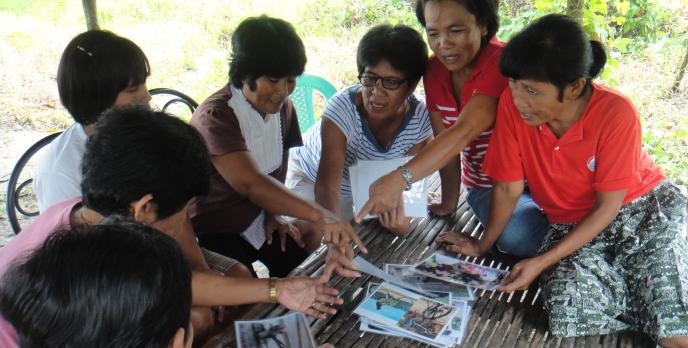Including Her Voice: Measuring Women’s Empowerment in Agriculture

Empowerment is a "multidimensional" and globally diverse concept. How then, do we include women's voices in a study designed to measure levels of empowerment?
In a Southeast Asian-focused study conducted by experts from the National University of Singapore and the International Rice Research Institute, they developed a qualitative research model to better understand women's empowerment in agriculture.
The researchers used focus group discussions to learn about the impact of different cultural, socio-political, religious and family values on women in these regions.
This approach provided rich insights into the societal norms and traditions that define a woman's role, as well as further opportunities for female empowerment in these spaces.
Significant regional and intra-regional differences were revealed, including jointly-owned asset dynamics within a marriage, and different levels of access to agricultural education and technology.
Women in all four countries revealed that they do not formally own any agricultural land, but they don't feel disempowered by this dynamic. They discussed that a formal agreement to establish their rights over property and assets is not necessary for them to be empowered.
In regards to agricultural extension services, women in Indonesia discussed the daily barriers they face when trying to access valuable resources for agricultural growth, whereas women in other regions have more access and more opportunity to connect with these resources.
———————————————————————————————————
[1] Akter, S. (2018, April 30). Going in-depth: A qualitative application of Women’s Empowerment in Agriculture Index (WEAI). Available at http://blogs.worldbank.org/publicsphere/going-depth-qualitative-applicat...

